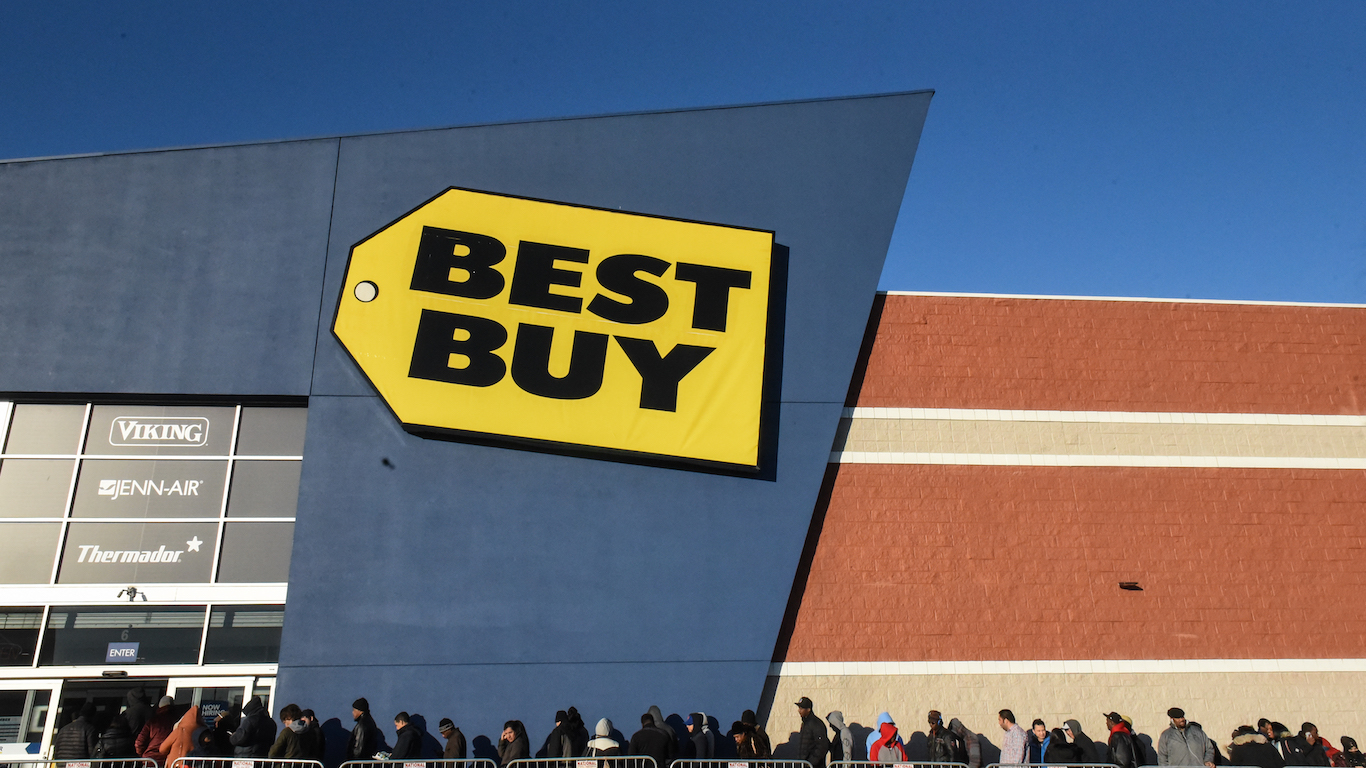
General Electric Co. (NYSE: GE) is continuing its fall from grace after earlier this week announcing that it would be cutting its dividend and making some changes to its business model.
Not only is GE the weakest component on the Dow Jones Industrial Average, but it also has the worst performance year to date, with its shares down over 40%. The next closest company is Verizon Communications Inc. (NYSE: VZ), which is only down 17% this year.
This company has been quickly falling in terms of its market cap, and within the index it now ranks as the eleventh smallest.
However, in a broader sense GE has been passing up other companies, or passing down in this case. Earlier this week we pointed out that Toyota Motor Corp. (NYSE: TM) eclipsed GE’s market cap.
Now the likes of Mastercard Inc. (NYSE: MA) and its $158 billion market cap are passing up GE’s $156 billion cap. While GE is still one of the 50 largest public companies in the world, it is about to fall out of this club.
24/7 Wall St. pointed out earlier that while cutting the dividend seemed like the catalyst for this drop, it was really just the final straw. The reduction in the dividend, from $0.24 per quarter to $0.12, is the first since 2009, the depths of the financial crisis. Not only that, but GE might have some planned divestures to make the company more profitable as well.
In the press release of the dividend cut, CEO John Flannery said:
We understand the importance of this decision to our shareowners and we have not made it lightly. We are focused on driving total shareholder return and believe this is the right decision to align our dividend payout to cash flow generation.
The dividend remains an important component of GE’s capital allocation framework. With this action and others that we will be discussing this morning, we are acting with urgency to make GE simpler and stronger to drive growth and create more value for our shareowners.
Shares of GE were last seen around $18.10, early Wednesday. The stock has a consensus analyst price target of $24.87 and a 52-week range of $17.46 to $32.38.
Mastercard was last seen trading at $149.10 a share, with a 52-week range of $99.51 to $152.00 and a consensus price target of $161.64.
Cash Back Credit Cards Have Never Been This Good
Credit card companies are at war, handing out free rewards and benefits to win the best customers. A good cash back card can be worth thousands of dollars a year in free money, not to mention other perks like travel, insurance, and access to fancy lounges. See our top picks for the best credit cards today. You won’t want to miss some of these offers.
Flywheel Publishing has partnered with CardRatings for our coverage of credit card products. Flywheel Publishing and CardRatings may receive a commission from card issuers.
Thank you for reading! Have some feedback for us?
Contact the 24/7 Wall St. editorial team.



